Ugadi is New Year’s Day in the three Indian states of Andhra Pradesh, Telangana, and Karnataka. On April 10, the Indian students at National Sun Yat-sen University (NSYSU) and Taiwan Telugu Association co-organized the Ugadi New Year’s Day celebration in the Performance Hall of the university’s Activity Center, inviting all Indian students, community members and friends from all over Taiwan to join in the festivities and enjoy a passionate and wonderful Indian singing and dancing performance. More than 140 people attended the event, which was filled with the festive atmosphere of India.
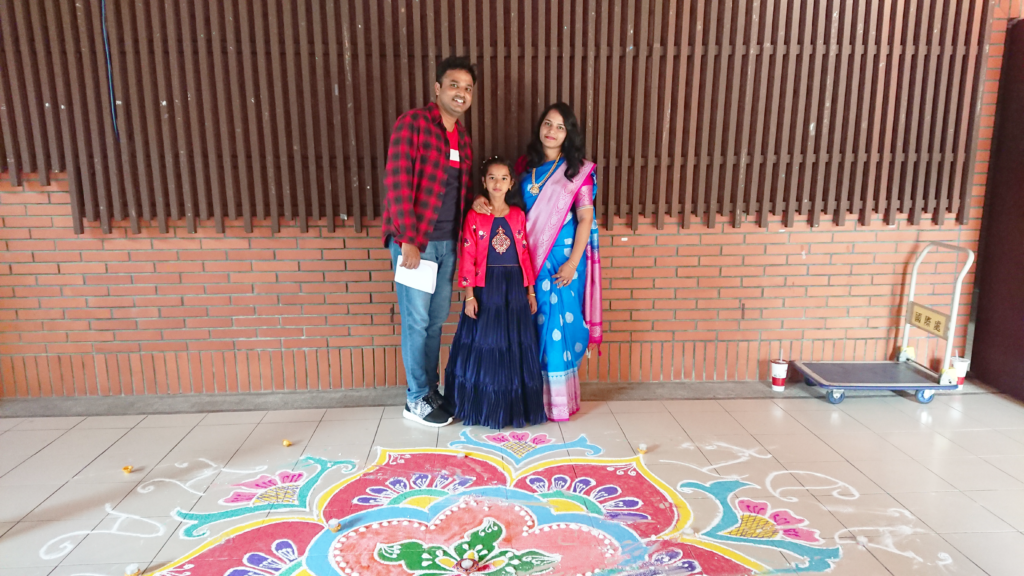
Two Indian Ph.D. students from the College of Management played key roles in the event. They actively took part in the event organization, including pre-event planning, venue arrangement, sponsorship planning, and even stage set-up, traffic flow control, hosting, performing, and many more roles on the event day. These two doctoral students were Mr. Rama Vandavasi, an alumnus of the Ph.D. program in the Department of Information Management, and Ms. Prasanthi Yepuru, a doctoral student in the Institute of Human Resource Management; they are a married couple.
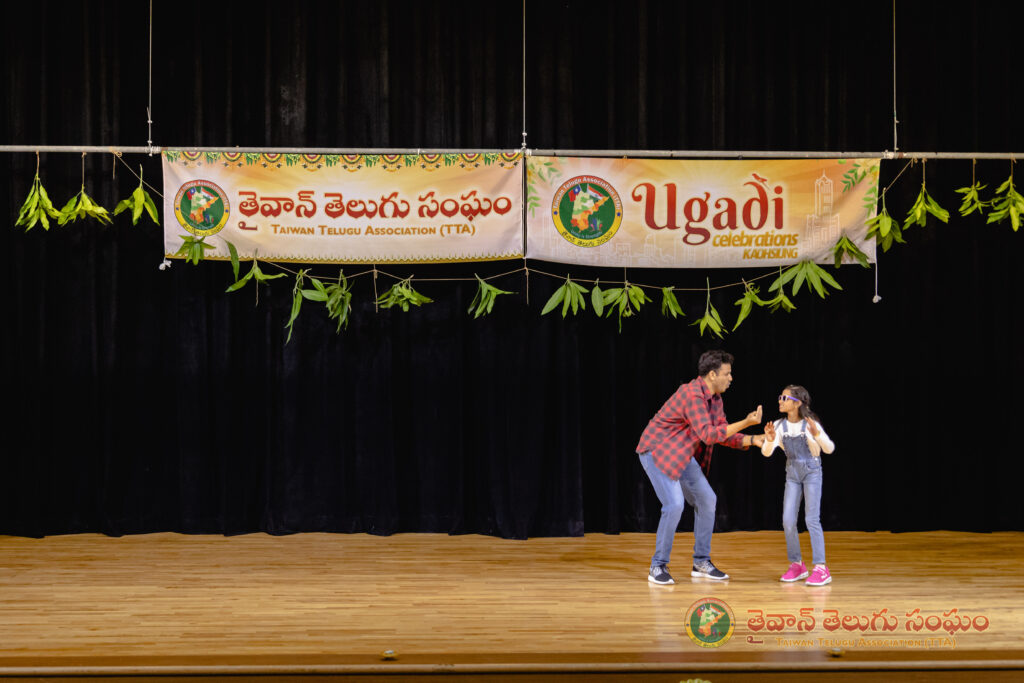
The couple are from Andhra Pradesh, India, and have been studying in Taiwan since 2013. Their eldest daughter speaks Mandarin natively and introduced Ugadi in Mandarin on the day of the event. Mr. Rama Vandavasi said he was really happy to support Indian cultural activities in NSYSU, as it provides the opportunity to celebrate traditional festivals with their compatriots in a foreign country.
The highlight of the event was the Indian song sung by Ms. Prasanthi Yepuru and the lively Tollywood style dance performance by Mr. Rama Vandavasi and his daughter, which drew enthusiastic cheers and applause from the audience. Their performance was not only joyful and warm but also filled with authentic Indian vibes.
The venue was decorated with colorful floor art known as ‘Rangoli’ and decorations such as mango leaves, which symbolize good luck. Many participants wore traditional costumes such as Kurta and Saree when attending this event.
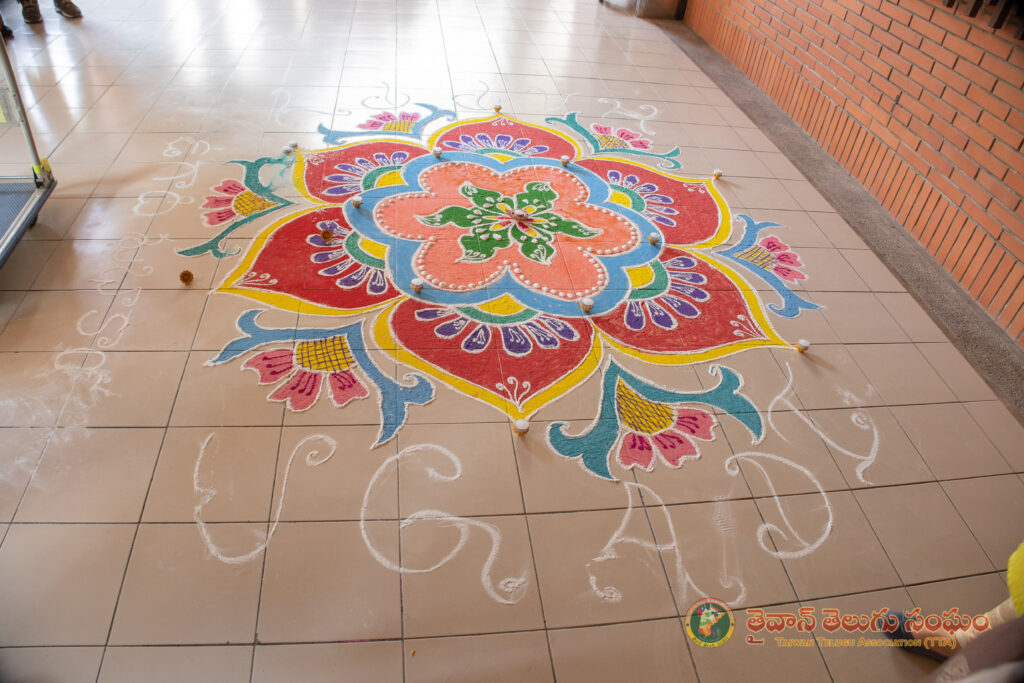
Dr. Chih-Wen Kuo, Vice President for International Affairs, also attended the event. In his opening remarks, Dr. Kuo welcomed the participants, who had come from all over Taiwan, and expressed that it was his honor to host such a grand celebration of this Indian festival at NSYSU. He mentioned that the Office of International Affairs were also partly sponsoring the event. He said, “In order to encourage international students in NSYSU to organize cultural and festive events from their own countries, the school has just last year approved ‘NSYSU Guidelines for Subsidizing International Activities Organized by International Students’; we hope that international students will be able to enjoy their nostalgia by organizing cultural activities from their home countries while studying in Taiwan, and at the same time help their teachers and other students here learn more about their countries and cultures.”
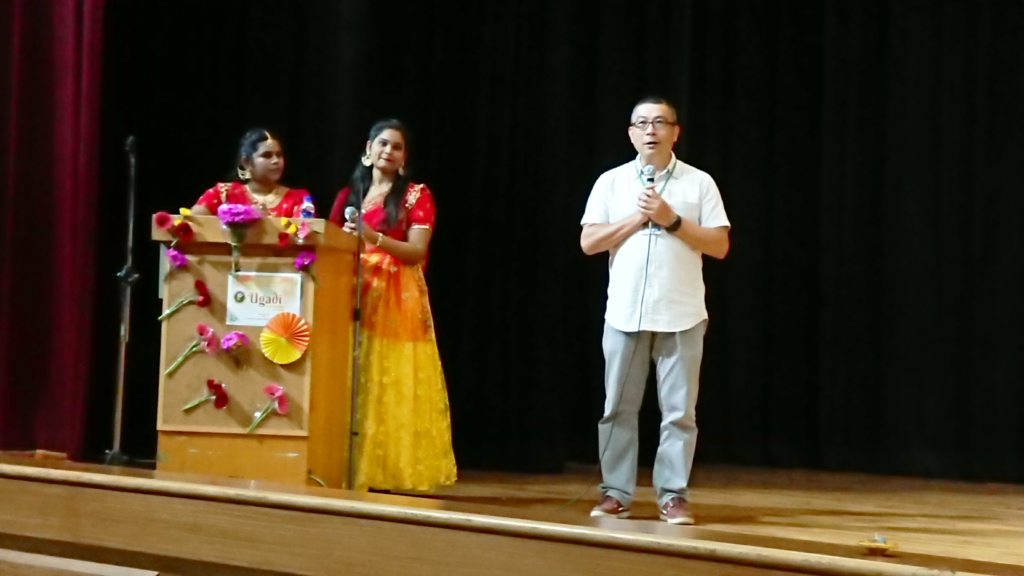
Ugadi is a traditional New Year Festival celebrated in Andhra Pradesh and two other states in southern and central India; the Telugu people celebrate the New Year from March to April every year, in accordance with the Hindu lunisolar calendar. This festival is their equivalent of the Taiwanese Lunar New Year. Many think that the famous Diwali is the Indian New Year festival, but in fact only a few states in northern India celebrate Diwali as New Year. In the vast majority of India, each ethnic group still holds on to its own traditional New Year customs and its own cultural traditions.
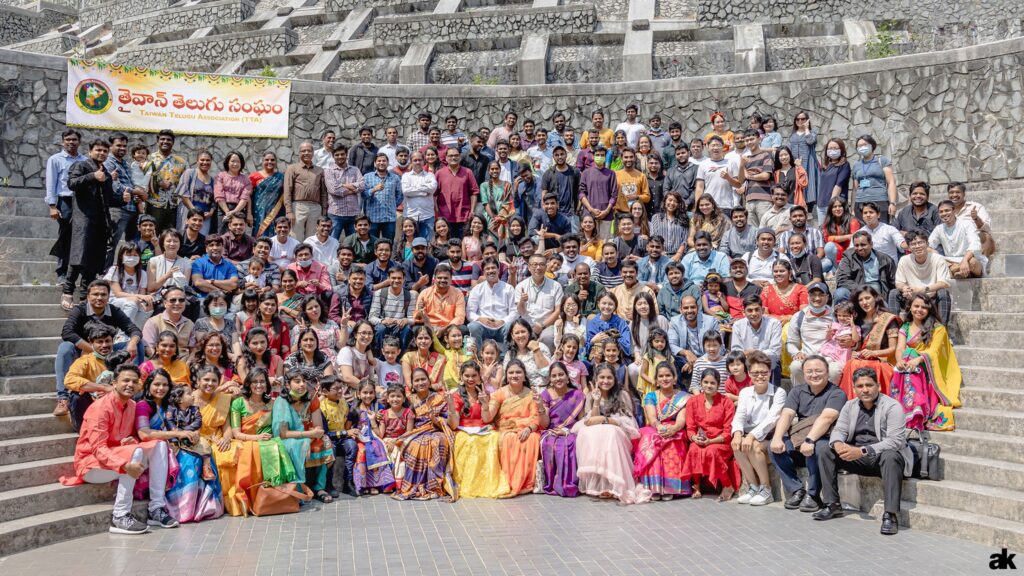
(This article has been provided by the Office of International Affairs and edited by the College of Management.)